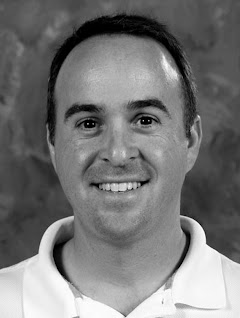Beat
Primarily, I tend to cover national news and professional sports. If, however, I could make a career out of shooting nothing but politics, I'd do it in a heartbeat.
One Shot

“I had been driving for hours looking for a photo to document Tropical Storm Debby when I simply pulled over and asked a local where he'd go if he were a news photographer covering the storm. He pointed me in the direction of a family-owned marina that had been flooded and when I arrived I found the owner standing in waist-deep water staring at her submerged business with a look of disbelief. The next day that photo of her was the largest image published of the storm in the New York Times and the world was able to get an idea of the personal cost of the storm.”
Profile
I can remember lusting after my father's old Pentax K1000 camera when I was six or seven years old. It had all of these fascinating buttons and dials and accessories, but most importantly, I looked really cool with it draped around my neck. When I turned 15 he gave me that camera and eventually the idea of looking cool with it faded, and was replaced by a sense of responsibility to tell stories.
I learnt to take photos by staring at the pictures in a four-foot-high stack of National Geographic magazines for years when I was a kid. I'd study those images until I knew every blade of grass in the field or every wrinkle on the subject's forehead. As I began to understand what good photography looked like, I'd head out, camera in hand, and try to make pictures that had the same depth and quality.
I was in way over my head on my first real assignment ever: a two-day shoot for the New York Times covering Fantasy Fest in Key West, Florida. I was living in Key West working in the field of maritime archaeology and was, at best, a hobbyist photojournalist. But the Times had been given my name and they were desperate because their photographer had had a last-minute emergency. I had no idea if the two-day shoot had produced a single useable frame but then, one day, I checked my email to find a glowing review of my images and a heartfelt thank you from the editor for doing such a great job. That was the day I became a photojournalist.
The assignment that left the biggest mark on me has to be Hurricane Katrina. I covered it for several weeks and it was the first time in my career when I could see immediate and tangible evidence that the work we do as journalists actually makes a difference. It was a powerful reminder that what we do is important and we have a responsibility to get it right.
I'm not sure I have a particular audience in mind when I take pictures because, like most of my colleagues, I'm convinced that every human on the planet is going to see my photos the next day. With they reach the Internet, my audience is the world.
My biggest lesson came while covering the Cholera outbreak in Haiti in the wake of the 2010 earthquake. It was one of those situations where everywhere I looked there was suffering, and those in pain were most often children and the elderly. I remember standing in a tent, not another photographer in sight, and realising that documenting this scene accurately and getting that information out to the world was my responsibility. It was just one of those moments where you feel almost light-headed as you have this sudden understanding of why you're placed on this Earth.
In this industry, the person I respect the most would have to be my friend, colleague and fellow Reuters freelancer Chip Litherland. His work demonstrates utter brilliance and he is, in a word, deft with a camera.
Behind the Scenes


